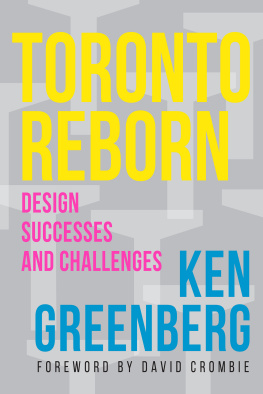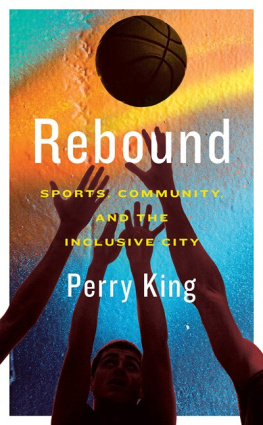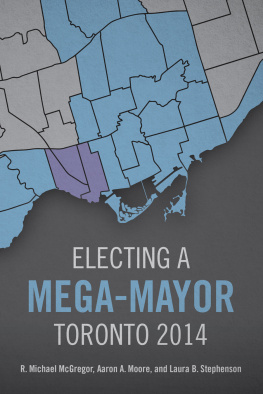Alana Wilcox - uTOpia: Towards a New Toronto
Here you can read online Alana Wilcox - uTOpia: Towards a New Toronto full text of the book (entire story) in english for free. Download pdf and epub, get meaning, cover and reviews about this ebook. year: 2001, publisher: Coach House Books, genre: Detective and thriller. Description of the work, (preface) as well as reviews are available. Best literature library LitArk.com created for fans of good reading and offers a wide selection of genres:
Romance novel
Science fiction
Adventure
Detective
Science
History
Home and family
Prose
Art
Politics
Computer
Non-fiction
Religion
Business
Children
Humor
Choose a favorite category and find really read worthwhile books. Enjoy immersion in the world of imagination, feel the emotions of the characters or learn something new for yourself, make an fascinating discovery.

- Book:uTOpia: Towards a New Toronto
- Author:
- Publisher:Coach House Books
- Genre:
- Year:2001
- Rating:4 / 5
- Favourites:Add to favourites
- Your mark:
uTOpia: Towards a New Toronto: summary, description and annotation
We offer to read an annotation, description, summary or preface (depends on what the author of the book "uTOpia: Towards a New Toronto" wrote himself). If you haven't found the necessary information about the book — write in the comments, we will try to find it.
Since the election of Mayor David Miller in November 2003, Toronto has experienced a wave of civic pride and enthusiasm not felt in decades. At long last, Torontonians see their city as a place of possibility and potential. Visions of a truly workable, liveable and world-class city are once again dancing in citizens heads. In the past two years, this spirit has, directly or indirectly, manifested itself in multifarious forms: in writer Sheila Hetis sui generis lecture series, Trampoline Hall; in the transformation of derelict hotels such as the Drake and the Gladstone into cultural hotspots; in renewed interest in waterfront revitalization and public transportation; in exciting, controversial architectural developments such as the OCAD building, the expansion of the ROM and the AGO; in the [murmur] project, which catalogues stories about Toronto neighbourhoods and broadcasts them to peoples cell phones; in the explosion of the local independent music scene.
uTOpia aims to capture and chronicle that spirit, collecting writing by many of the people inspired by and involved in these projects. Featuring passionate, visionary essays by thirty-four different journalists, artists, thinkers, architects and activists, uTOpia is a compendium of ideas, opinions and strategies. The anthology explores plans to redevelop the Island airport into a Wards Island-style community; how the Zeidler family is energizing artist-run centres; what a car-free Kensington Market might mean; the necessity and beauty of laneway housing; the way past efforts to combat devastating developments like the Spadina Expressway have shaped current activism; what a utopian Toronto might look like mapped out; and much, much more. Playful, erudite and accessible, uTOpia writes Toronto as it is shared and created by the people who live here. Though it is by no means a complete picture of what is happening in the city right now, it will hopefully show that what was once just a T-shirt slogan I Heart T.O. is now genuine, heartfelt sentiment.
Contributors include Howard Akler, Andrew Alfred-Duggan, Jacob Allderdice, Bert Archer, James Bow, Nicole Cohen, Jonny Dovercourt, Dale Duncan, Philip Evans, Mark Fram, Misha Glouberman, Chris Hardwicke, Sheila Heti, Alfred Holden, Luis Jacob, Lorraine Johnson, Edward Keenan, Mark Kingwell, John Lorinc, Sally McKay, Heather McLean, Dave Meslin, Shawn Micallef, Derek Murr, Ninjalicious, Darren ODonnell, Planning Action, Barbara Rahder, Dylan Reid, Erik Rutherford, Jeffrey Stinson, Deanne Taylor, Conan Tobias, Stphanie Verge, Adam Vaughan and Marlena Zuber.
Alana Wilcox: author's other books
Who wrote uTOpia: Towards a New Toronto? Find out the surname, the name of the author of the book and a list of all author's works by series.





